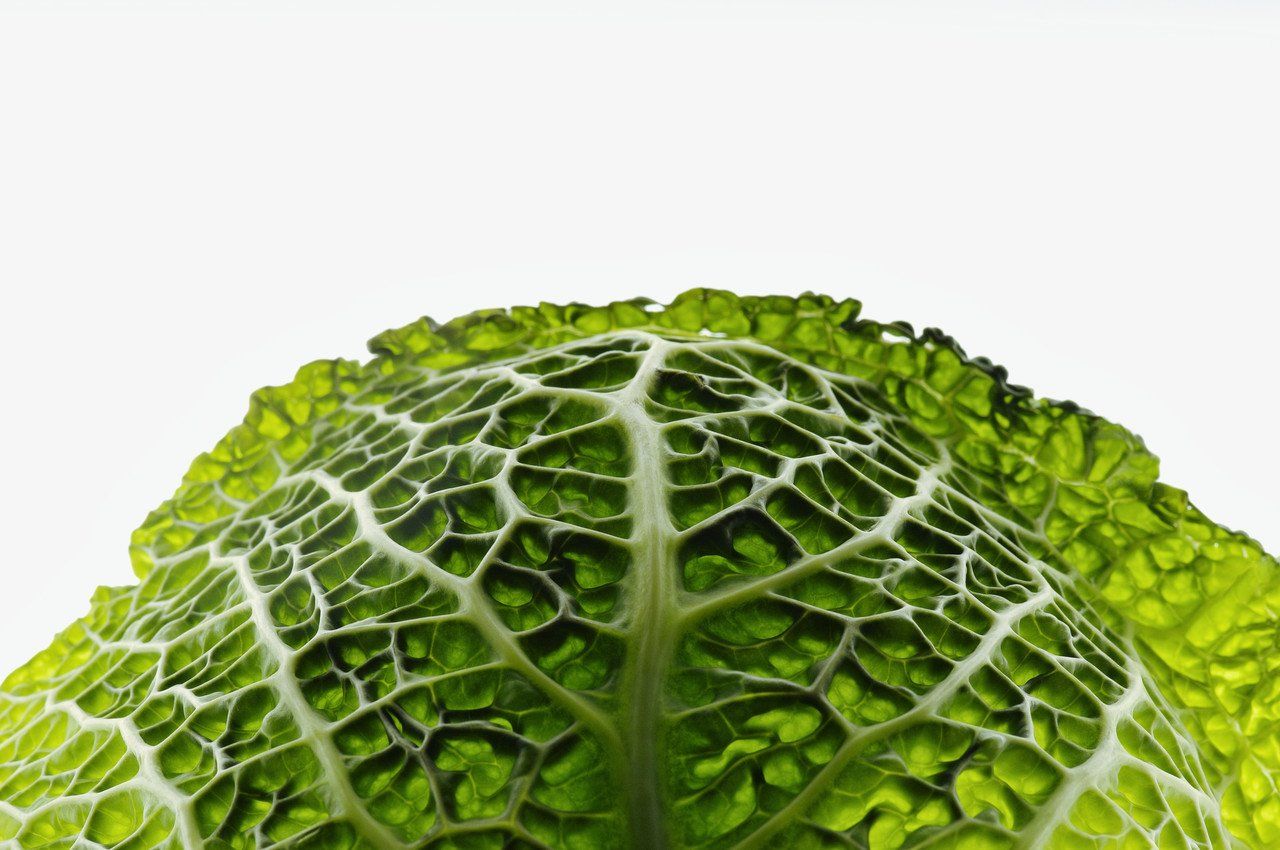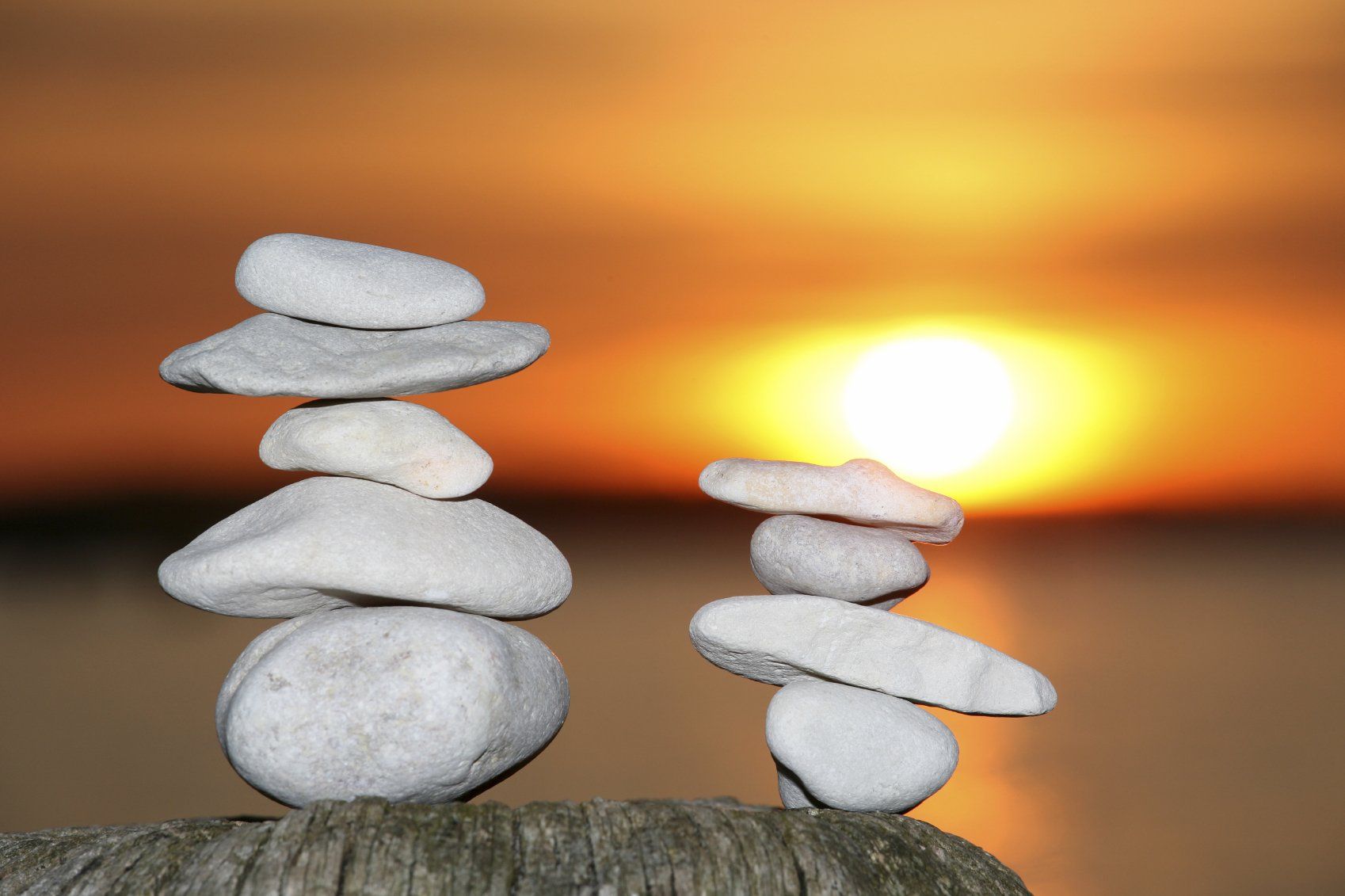Blog Layout
Maintain your weight loss by walking
Caroline Tyrwhitt • Aug 17, 2020
I don’t know if you, like me, have a bit of an aversion to ‘exercise’ but I learned to dislike it at school. Part of the yo-yo dieting treadmill for me has been going to exercise classes I hated in the attempt to lose weight and, like the diet, it too would be short-lived.
Yet a couple of years ago, I joined a pilates class that I loved and kept it up each week until lockdown when I’ve done a little every day. I’ve also added skipping to my routine to bring some cardio into my life. The difference is that I actually quite enjoy these two forms of movement and they don’t take too long.
At the beginning of July, I was convinced to join the Diabetes UK Million Step Challenge. I thought it would be a good way to finally get round to that daily walk that has been on my to-do list for the last couple of years to maintain my weight loss and boost my creativity and wellbeing.
So what have I discovered about walking and weight loss and myself when setting a goal that I’ve clearly been resisting.
THE CHALLENGES
I should know better than to have picked a goal that is not sustainable for my lifestyle - that was because I decided to do it at the last minute and I didn't want to do it by 'half'. To achieve the goal, I ‘should’ be doing 10,000 steps a day and that takes about an hour and a half. I have probably managed 5,000 a day on average and usually 'underachieving' would be unacceptable for me and so I wouldn’t bother at all. However, I’ve decided that done is better than perfect - and I am happy to keep going at my rate.
I should also know better than to create a goal and make it not just about me - I’ve approached this as a project and included my partner to help him too as he has diabetes. As a coach, I know that on the one hand it’s good to have a buddy for accountability, but I also know it means I am less likely to achieve my goal as I am interdependent with someone else. For example, right now he has a problem with his foot and he hasn’t been able to walk for about 10 days. If it were my goal alone, I would go out walking anyway, but it isn’t, so I haven't.
I am very task oriented. The same self-talk that can stop me going to bed at a regular time each night can also prevent me going for a walk. My inner voice says, ‘I’ll just do….’ or 'I'll go after I've ....' as I am reluctant to stop what I’m doing and value ploughing through my to-do list over exercising. When I write 'walking' on my to-do list and put it on my schedule, I fit it in! The more I have discovered the benefits to me of walking, the easier it has become to challenge my self-talk.
THE BENEFITS
I feel more energised. I love getting out in the fresh air, marvelling at the wildlife and discovering my neighbourhood. Walking is really for our mental wellbeing as it releases endorphins that boost our mood and energise us. When we feel physically empowered, we make different choices for ourselves and therefore eat differently. Being outside is also a great way to boost Vitamin D levels which lift our mood too, as well as improving bone strength.
My productivity has increased. I do a lot of thinking while I’m walking and by the time I get back, I’m always clear on what I want to write or say next. This has been a great realisation to challenge my inner voice with. Apparently walking is so good for our brain it reduces our risk of Alzheimers.
Time away from my desk walking has
reduced my stress levels
as I have reframed my expectations and shifted my priorities. That will have reduced my cortisol levels and, along with my pilates roll ups, will be keeping those ‘love handles’ in check.
I haven’t lost any weight
as the ‘exercise to lose weight’ myth would have me believe I should have, but I know that it is helping me maintain my weight loss. I know that you have to do a LOT of exercise to lose weight so for me this is more about overall wellbeing. When we feel well, we make more helpful food choices. And although walking can speed up your metabolism for an hour or so afterwards, weight loss is much more about your resting metabolism. I have also monitored my eating to make sure I’m not eating more - often when we exercise we get hungry and end up eating more than usual which then counteracts what we’ve burned off.
I sleep well when I walk. I don't mean that I feel sleepy after walking, quite the contrary. I mean I fall asleep more easily at night and feel rested when I wake up. Walking boosts our melatonin levels which is what we need to fall asleep at night. Sleeping well at night ensures we don't have cravings and don't overeat.
My legs feel stronger
as the muscles have toned. Strangely that makes me feel more grounded and confident in my ability to exercise. My glutes are also less tight from sitting down all day making me feel more supple and comfortable.
What I'm really enjoying is the flexibility. Not only is walking right on my doorstep but I can choose different routes according to how long I have available to walk. Sometimes I walk faster or take a more uphill route to get my heart-rate up which is great for heart health and burning fat. Other times I walk more gently and slower to benefit from the muscle stretch. If it's raining, I dance in my kitchen!
I like walking in the afternoon mostly. I’ve tried walking at various times of the day and they all have advantages and drawbacks. The arguments for walking in the morning are that it set you up for the day and you don’t have to challenge your excuses for not going. The drawbacks for me are that I already have a good morning routine and prefer to use my time creatively and I found that going before breakfast made me feel irritable. I like going after dinner in the evening as a lovely slower walk aids with digestion and reduces blood sugar levels, but it woke me up! At lunch time, once I challenge that inner voice, it gets me off the computer, stretches my legs and re-energises me for the afternoon.
If you would like help creating a motivating and achievable goal just for you, why not book an EmPower hour with me.
If you’d like to sponsor me, Diabetes UK will thank you.

by Caroline Tyrwhitt
•
21 Jan, 2024
Did you know you have over 6,200 thoughts in a day? And that you make over 200 decisions about food a day? Most of which are unconscious. And that when you deprive yourself of food by going on diet you focus your mind on food even more, even causing yourself to fantasise and dream about food?

by Caroline Tyrwhitt
•
13 Sept, 2023
For five years I’ve been sharing my journey and the tools and techniques that have helped me with others. I thought that now would be a great time to reflect on my journey to lose weight and keep it off without dieting. I made my change with ease, but that doesn’t mean it was simple. When my actions were in alignment with my plan, I felt in flow and empowered. If life or decisions felt difficult, I would notice I was not following my mindset plan. I have learned lots about myself along my chosen path, which is very exciting. It's a bit like Russian dolls, you sort one layer and then you find another layer to be sorted underneath, another facet of my habits or thinking to consider. And the secret is to find the core of who you are at the centre. Below are my key takeaways, the key changes that were perfect for me. Some will resonate with everyone, some are more specific to me. 1. Working out what balance of habits and foods will keep my body slim, my brain functioning at its best and me feeling calm and full of energy - for the long term. This is an ongoing experiment for what my balance looks like because I want to be able to go with the flow of life rather than follow a strict regime. I believe that what we do most of the time matters more than what we do once in a while. Although some of the NLP tools I used on my journey flipped a switch and I’ve never thought about food, dieting or life in the same way again, I have also discovered that some aspects of change haven't been straightforward. I firmly believe success is not a straight line, and success is personal to each one of us. I also know I learn from barriers I come up against rather than give up. I have clarity on what I want to do and who I want to be and from there I’ve have been testing how often I can afford to socialise and celebrate with friends and family or eat out - without worrying about what I’m eating - before it impacts on my long-term well-being. I have also learned to be more playful so that I break my old habit of focussing just on my career rather than the whole me. 2. Committing to doing the grocery shopping and the cooking. As a woman who claimed she couldn’t cook so that she wouldn’t be stereotyped, this was a big shift. I decided that it was important if I wanted to control what food was in the house and what I ate - very few refined carbs, very few sugars and as much fresh produce as possible. And as I researched foods that were more nutritious options, I could quickly put them on my online order for the week and save a recipe to my computer. I even started to grow more produce in the garden. This worked really well (I even started to enjoy cooking) when I was working from home full time. When I changed my work pattern back to an old environment (back to school!) I let my commitment to cooking slip. I noticed I gradually put on weight. So I had to come up with another way around the cooking and that was cooking enough for two meals at a time. 3. Creating new morning and evening routines to ensure I had enough sleep and moved regularly. This may sound small to some of you, but I had to change my work habits radically in order to achieve this: I had happily worked late into the night ‘just to finish these last bits’ for years and I always prioritised my to-do list over sleep. I had learned to plough through when my energy levels dropped and I worked to relieve worries or other uncomfortable emotions, I would ignore signs that my body needed sleep, water and sustenance. I even ignored signs of burnout. I think I would describe myself as a workaholic. The first impact of getting enough sleep was to help me reduce my stress levels. Double bonus as I could then stop the vicious cycle causing a build up of cortisol that causes visceral fat and that tyre around my middle. When rested, I could also learn to change my stress strategy and find more balance in my day and my thinking. I have become much more self-compassionate and more mindful. Sleep has indirectly helped me let go of perfectionism and change my time poor narrative: done is good enough and there is always time have become my mantras. 4. When who you live with is on board with your new way of eating and being is easier. When others in your household also want to make a shift to a healthier way of being, to manage their energy and maximise their mind and body function, it is so much easier as you’re sharing the same values and the same goal. It’s also great to share ideas, motivate and encourage each other and keep each other to account. This is especially true if like me you have people pleasing tendencies, or a tendency to prioritise the needs of others before your own. Also when I'm tired I'm more likely to give in to the easier option - of what others want, or going out for food. It was so much easier when I didn't have to work round other people's desires, manage their resistance or remind myself to reinforce my boundaries, my rules. 5. When one thing changes it impacts elsewhere - this works in both helpful and unhelpful ways. On the upside, me choosing to make small changes to improve my wellbeing boosted my confidence. One inner change had a great influence on other habits. For example, when I joined a pilates class it made me feel stronger and helped me ‘think slim’. Gradually learning which foods benefited my mind and body made me feel empowered and positive that I was building a great life, that I was in charge not food. Whereas ‘dieting’ had made me feel deprived and I focussed on struggling to ‘lose weight’ and wondering when it would be over. On the downside, a change in external circumstances upset my routine several times and I struggled to rebalance it. It was a test of resilience and flexibility. First, my pilates class was cancelled and the alternatives weren’t at a convenient time so I had to create a new morning routine where I fit my favourite exercises in while I waited for my tea to brew in the morning. More significantly, but I didn't realise the impact for quite a while, going back to teaching a few days a week introduced stress back in my life in the form of microstressors. Microstressors are the small stresses that we experience every day and write off as something we can deal with. I believe the conflict that comes as part of the experience of being a supply teacher is the cause of the build up of abdominal fat over the last couple of years. I couldn’t place what was causing it for the longest time as I was sleeping okay and didn’t feel ‘stressed’ like I had as a senior leader in school. If you would like a coach to help you find balance in your life with food, so that you can stop going on a diet and stop yo-yoing, then message me and we can explore how you would like to work with me. If you would like to try out what it’s like to work with me first, register for my next 5-day Mindset Reset here . Or if you would like more tips that you can start to address in your daily life download my free tip sheet to overcome self-sabotage and escape the trap of yo-yo dieting here .

by Caroline Tyrwhitt
•
11 Aug, 2021
I was amazed at just how strong that ‘go on a diet’ programming is when that thought popped into my head after my recent holiday here in the UK rather than abroad in the sunshine by the sea. I am a firm believer in the mantra ‘what you do every day matters more than what you do once in a while’ and that the best response to a blow-out is to just get back to your usual routine: that lifestyle that gives you the body you want. I haven’t dieted for a few years now, so what is it that triggered that old thought? I am sure that it was the extreme sense of feeling unwell, unbalanced and bloated as a result of eating refined carbs - particularly bread - every day and eating dairy, especially enjoying locally made ice creams. I felt a great desire to cleanse my body and lose those pounds that were making my clothes feel tight. So how do you detox your body naturally? Our body is very clever and designed to eliminate toxins; it doesn’t require any 'special' diets or expensive supplements to cleanse it. We can enhance our body’s natural detoxification system by following the principles below. For me, that is going back to that awesome routine I've created that keeps me feeling energised and well and maintains my weight loss. Reduce your alcohol consumption . I had been enjoying beer or wine every day on holiday, and not just one glass. Normally, I only drink wine at the weekends and as a rule only have one or two glasses so going back to that routine will immediately make me feel better. 2. Drink more water . Water regulates your body temperature, lubricates joints, aids digestion and nutrient absorption, and detoxifies your body by removing waste products. I struggle to keep a good water habit and so I had easily fallen into having orange juice with breakfast and coffee during the day, especially cappuccino which I rarely drink. I’m now back to alarms to remind me to drink water first thing, if I feel hungry and before I eat as it also helps reduce my appetite. 3. Reduce your intake of processed foods . Eating out at all, let alone eating junk foods, means eating processed foods that contain sugar, salt and unhealthy fats. These foods lower our energy levels and are considered to be the cause of obesity and harm your liver and kidneys. While I had enjoyed a break from cooking, my feeling of wellbeing was deteriorating - despite being on holiday. In fact, I was longing for some home-cooked food. 4. Eat more foods full of antioxidants . Antioxidants help your body fight oxidative stress which is linked to chronic conditions. Examples of antioxidants include vitamin A, vitamin C, vitamin E, selenium, lycopene, lutein, and zeaxanthin. Prioritise the vegetables on your plate, eat berries or grapefruit for breakfast, snack on fruit, nuts or cacao, and drink green tea and coffee. My first meal back was stuffed marrow that I harvested from the garden and I have a fridge full of chard and beans from my parents. I’ve bought my usual go-to foods of broccoli, spinach and avocado as they are high in nutrients and antioxidants and have decided to add beets to the shopping list this month as they are also high in antioxidants - I love them roasted or in falafel. 5. Eat more foods high in prebiotics . Good gut health keeps our body’s detox system working well, boosts our immune system and keeps our serotonin levels high which makes us feel so much better. Tomatoes, onions and garlic are my favourite prebiotic and feature in most meals. Sadly, my tomato plants died while we were away, but my mum has given me plenty from her garden. I’ve bought asparagus as it’s good for your gut health, is a diuretic and it’s full of antioxidants. The bananas are in the fruit bowl and I’ve already had a muesli for breakfast made with oats. In addition I’m going to try cooking artichokes as they are not only good for your gut health but are also high in antioxidants. 6. Sleep 7-9 hours a day . Getting enough sleep is paramount to supporting your body to maintain its immune system and remove toxins from your body. This was one of the aspects of my routine that I maintained well while on holiday and now I need to ensure I continue to get those 8 hours of rest that is perfect for me so that I feel energised with my brain and body working optimally the next day. 7. Get moving . Movement is great for reducing inflammation and supporting physical and mental wellbeing. While on holiday, I had averaged about 10,000 steps per day which made me very happy and the trick for me is to keep movement in my routine on my return. There’s plenty of gardening to be done and when the rain stops I look forward to walking through the local fields. What will you do now to support your body to maintain its optimum detoxification systems? If you would like support with overcoming your habits that are preventing you from being your best you and with creating that lifestyle that will give you the body your desire, then give me a call and we can discuss how I can help you level up your life.

by Caroline Tyrwhitt
•
22 Jan, 2021
When I set goals with my clients - and I mean powerful well-formed outcomes - not a weight loss target, I encourage them to be creative in how they measure their success rather than using the traditional measure of how much weight they have lost. What a scale tells you, is only a tiny bit of what losing weight is all about. In fact that’s why I don’t call it weight loss but changing your relationship with food. And actually I believe using scales can be detrimental to your success. Those scales are loaded with all kinds of connotations and can trigger disappointment, unhelpful beliefs and thinking and can ultimately sabotage your efforts and send you scurrying back to old habits. Just because of a tiny measure at a particular moment in time. You probably don’t weigh yourself at any other time than when you ‘on a diet’ so it’s just a system to find out if that deprivation and hell you’re putting yourself and everyone else through is worth the effort. Or it’s checking your paranoia that you’ve put on weight because you ‘ate a piece of cake’ this week. Or it’s something to avoid because it’s associated with guilt because you know you haven’t been ‘good’. How to weigh yourself if that's what's right for you You may have put on weight this week no matter what you ate. Your body may have been due to ‘put on weight’ due to your hormones this week. The truth is our body weight fluctuates in a cycle, so if yo do want to weigh yourself, make sure you weigh yourself and compare against the same time in your cycle last month - not trying to check how much you’ve lost in the last week. To do that well, you’d need to weight yourself every day for a few months without ‘dieting’ to discover your personal pattern and how much your weight fluctuates by naturally. And even when you achieve your ‘ideal body weight’, you will probably fluctuate around that too. Naturally. Humanly. Perhaps around 10 pounds or so according to different celebrations and commitments in your life. It doesn’t mean ‘you’re putting on weight’ or you’ve been ‘bad’. What is important to notice is if you’ve gone back to old habits - those habits that caused you to gain weight. Those are really important to monitor. Alternative ways to measure and celebrate your changes and your success It’s really important to create good habits that support your wellbeing. It is our habits that are the greatest predictor of our success. Therefore it makes sense to monitor and measure those habits and to celebrate them to keep yourself on your journey towards your goal. would be motivating and purposeful. Other ways you could measure your journey that would be motivating and purposeful are: Your energy levels How comfortable your clothes are Which clothes in that wardrobe of multiple sizes actually fit The visceral fat around your middle The reduction in the medications you’re taking How many times you honoured you and said ‘no’ Keeping to your self-care plan Your food choices and amounts There are so many ways to measure your success. It depends on the small changes you choose to make. It depends on your why. It should be personal to you. Because it’s YOUR journey. So why not ditch that old habit of the scales and find a more rewarding way to measure your success and your progress on your journey of change? If you would like to create a well formed outcome that will propel you towards your goal and work with me to find the best way to measure YOUR success, then why not contact me and we can chat. My goal setting sessions are generally 90 minutes or we can include it in a package of coaching sessions or perhaps this year is the year you absolutely invest in your success and work with my on my flagship Mindset Diet TM programme. Because how we do food is how we do everything. 😊
2 Sims Cottages, Braintree Road, Wethersfield, Essex, CM7 4BX, UNITED KINGDOM
| +44 771 4332987





